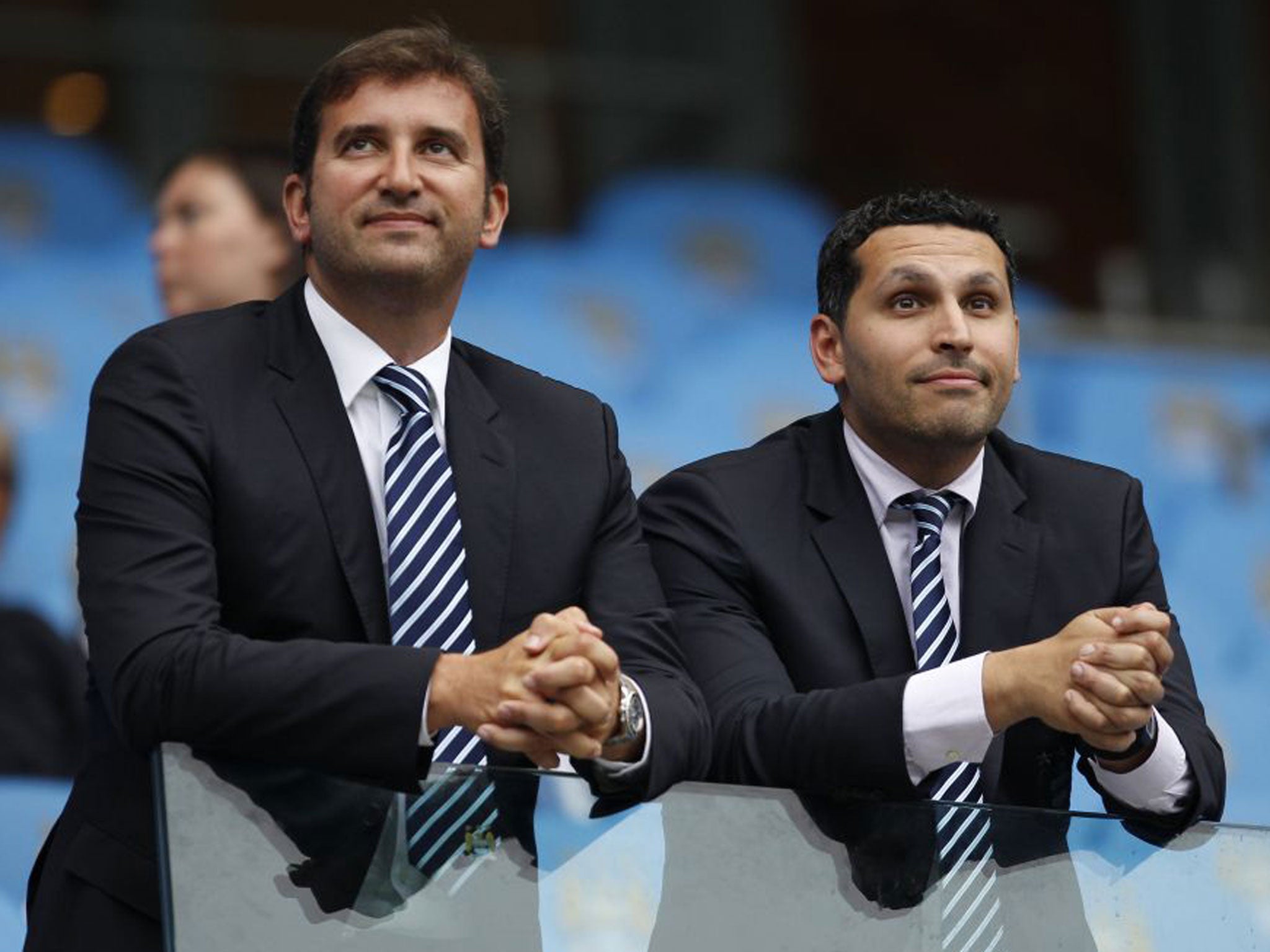£97.9m loss leaves Manchester City struggling to meet FFP terms
Annual wage bill has risen from £173m over £201m

Your support helps us to tell the story
From reproductive rights to climate change to Big Tech, The Independent is on the ground when the story is developing. Whether it's investigating the financials of Elon Musk's pro-Trump PAC or producing our latest documentary, 'The A Word', which shines a light on the American women fighting for reproductive rights, we know how important it is to parse out the facts from the messaging.
At such a critical moment in US history, we need reporters on the ground. Your donation allows us to keep sending journalists to speak to both sides of the story.
The Independent is trusted by Americans across the entire political spectrum. And unlike many other quality news outlets, we choose not to lock Americans out of our reporting and analysis with paywalls. We believe quality journalism should be available to everyone, paid for by those who can afford it.
Your support makes all the difference.Manchester City are facing a severe challenge to comply with Uefa's financial fair play (FFP) regime after yesterday announcing annual losses of £97.9m.
The sum was reduced to less than half the £197.5m loss the club announced 12 months ago because of increased revenues. But City's annual wage bill has risen from £173m to a fraction over £201m – and if the club is to hit the limited losses allowed for in the initial two-year FFP monitoring period, they will require a spectacular performance in the current financial year. The figures reveal that failure to qualify for the Champions League knockout phase was a heavy blow to the club's efforts to meet FFP targets.
City – whose figures reveal a £500,000 "compensation for loss of office" pay-off to their former chief executive Garry Cook – insisted last night that they remain confident of complying with FFP. An estimated £15m of the losses are "allowable losses" under FFP because they have been spent on infrastructure and young players, which do not count in the final FFP reckoning.
Money spent on wages in contracts negotiated before 1 June 2010 is also deductible and there is a feeling at City that this may help them get close to the Uefa target. That allows them to take Carlos Tevez's wages out of the equation, for example. But while the contracts may enable City to shave another £50m off the £97.9m losses – taking the FFP loss figure to around £30m – the small print of the FFP guidelines reveals wages may only be counted in this way if they are the sole reason a club has failed to hit the compliance target.
The two-year monitoring period, of which the latest 2011-12 season figures represent the first year, allow for an overall accumulative loss of £38m. With the City wage bill for 2012-13 unlikely to drop and no substantial new commercial deals believed to be in the pipeline, converting the notional £30m "FFP loss" into an overall two-year £38m "FFP loss" looks a tall order. The £50m pre-2010 wages figure cannot be taken off again in the accounts delivered next year. A potential £20m evaporated when City failed to progress in this season's Champions League.
The results, which were slipped out late yesterday afternoon, demonstrate why City's manager, Roberto Mancini, will have a very difficult job persuading the club's chief executive, Ferran Soriano, to spend this winter. Transfers will only be sanctioned in a medical emergency, even though Mancini yesterday said of the January window: "I don't know. Now we will see what happens."
It appears to be a question of by how much City will miss Uefa's £38m target, rather than whether they will miss it. City will have to hope Uefa applies substantial weight to the "trending" factor and credits them for trying to drive down the losses.
City have always said – with total justification – that they would need to spend heavily on transfer fees and wages to take them where they want to go under Abu Dhabi ownership, rather than grow organically, and yesterday's figures do reveal a club building commercially on the on-field success. They report turnover in the 2011-12 season of £231.1m, the highest in the club's history and also confirm that owner Sheikh Mansourr Bin Zayed al-Nahyan has strengthened the "capital base of the club ....through the issuing of £169m in new equity during the year, avoiding debt-based funding and continuing to ensure the club is virtually debt-free".
While the results show marginal increases in gate receipts and TV revenue, it is in the commercial sector City are making huge gains, with the Etihad sponsorship deal bringing in £35m-£40m a year and worth £400m over 10 years. Revenue went up from £64.7m to £121.1m, underlining City's increasing global exposure.
Soriano said: "What I have found is a club on the verge of a historic transformation, reinforced by a genuine commitment to doing things well. It is a club with a rich history and potential for an even brighter future."
City in numbers
35 Amount, in £m, paid for Sergio Aguero in 2011, City’s record buy
£201m Man City’s wage bill last season - up from £173m in 2010-11
£97.9m Annual losses for City – a fall from previous total of £197.5m
Join our commenting forum
Join thought-provoking conversations, follow other Independent readers and see their replies
Comments